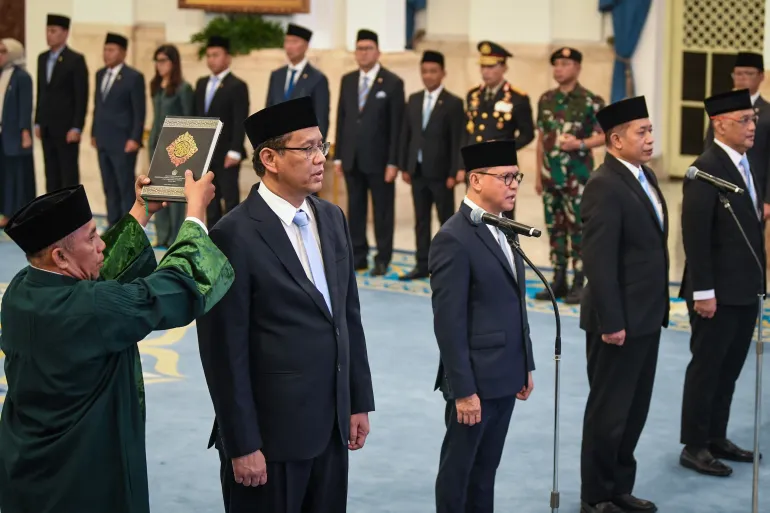Jakarta — Indonesia has entered a turbulent political moment after President Prabowo Subianto dismissed five ministers in response to nationwide protests that left at least ten people dead. The reshuffle, announced on 8 September 2025, came just days after demonstrations escalated into violence, highlighting both domestic discontent and regional concerns over stability in Southeast Asia.
The protests were triggered by revelations that members of parliament received a monthly housing allowance of 50 million rupiah, nearly ten times Jakarta’s minimum wage. Public anger intensified after the death of 21-year-old delivery driver Affan Kurniawan, who was struck by a police armored vehicle during a rally. His death became a rallying point for youth and labor groups, amplifying calls for accountability and reform.
Among those removed from office was Finance Minister Sri Mulyani Indrawati, a respected technocrat with international credentials, whose residence was targeted by protesters. She was replaced by economist Purbaya Yudhi Sadewa, formerly head of the Deposit Insurance Corporation, who pledged to accelerate growth while ensuring fiscal efficiency. Other ministers dismissed included Budi Gunawan, the coordinating minister for politics and security, as well as the ministers for cooperatives, youth and sport, and migrant workers protection.
The reshuffle was accompanied by concessions from the government, including the revocation of lawmakers’ controversial perks and the suspension of overseas trips. These measures were intended to calm public anger, but observers note that the unrest has exposed deeper frustrations over inequality, youth unemployment, and perceptions of elite privilege.
ASEAN partners are monitoring developments closely. Indonesia, as the region’s largest economy and a key diplomatic actor, plays a central role in regional stability. Prolonged unrest could affect investor confidence and complicate Jakarta’s leadership in ASEAN initiatives, particularly in economic integration and security cooperation.
Regional analysts also point to concerns over the military’s expanding role under Prabowo, a former general. While the president has emphasized law and order, critics warn that heavy-handed responses to protests risk undermining democratic freedoms and tarnishing Indonesia’s international image.
Despite the turbulence, calm has largely returned after the government’s concessions. Yet the episode underscores the fragility of public trust and the urgency for reforms that address economic grievances. For ASEAN, Indonesia’s ability to balance domestic stability with its regional commitments will remain a critical test in the months ahead.
The cabinet reshuffle may have restored short-term order, but the long-term challenge lies in rebuilding confidence—both among Indonesia’s citizens and its regional partners.







